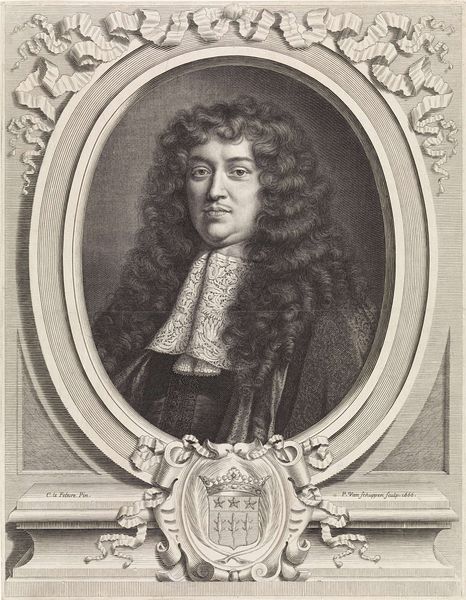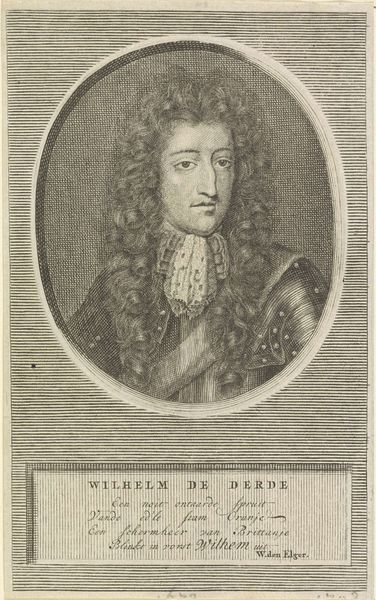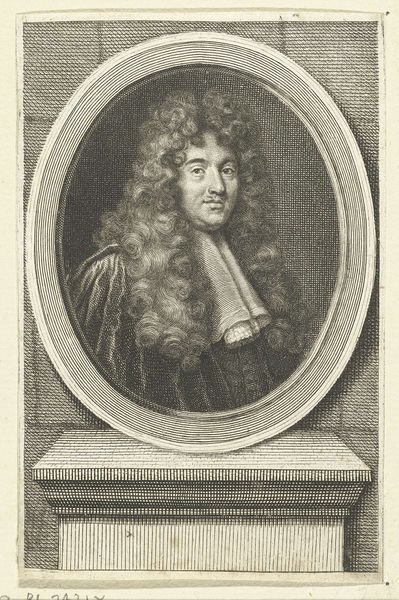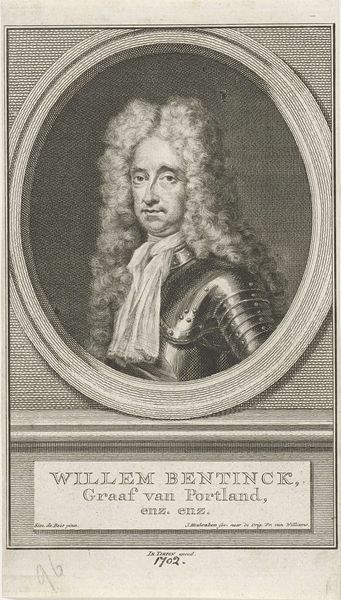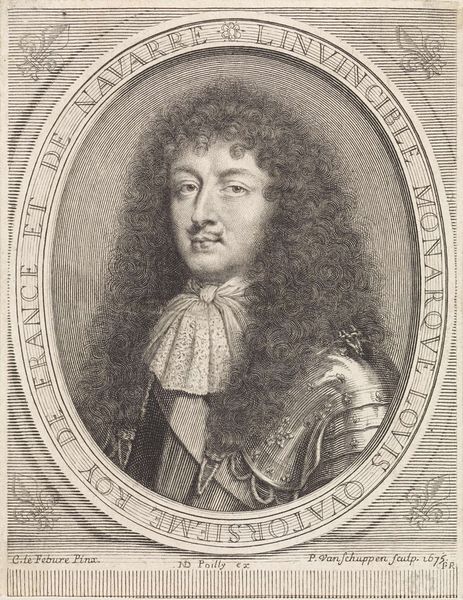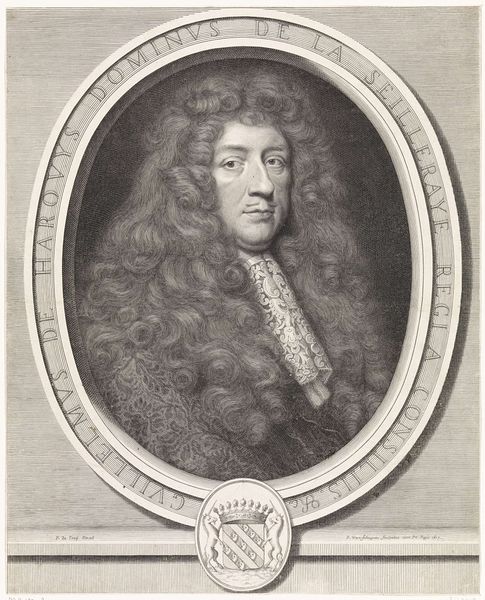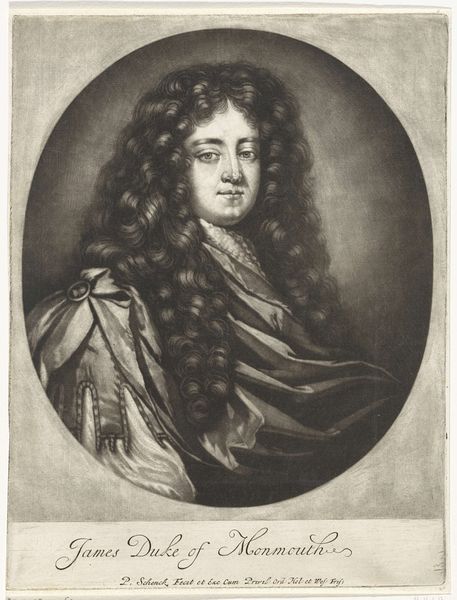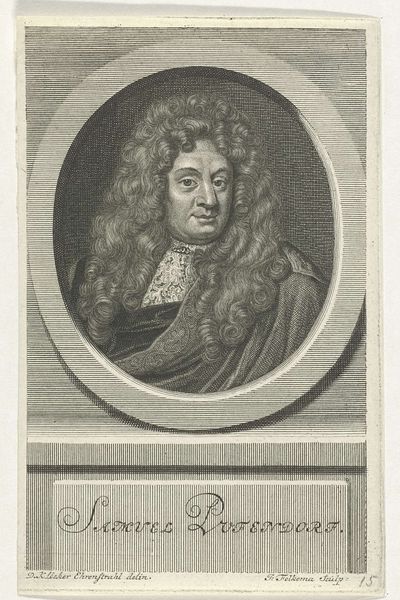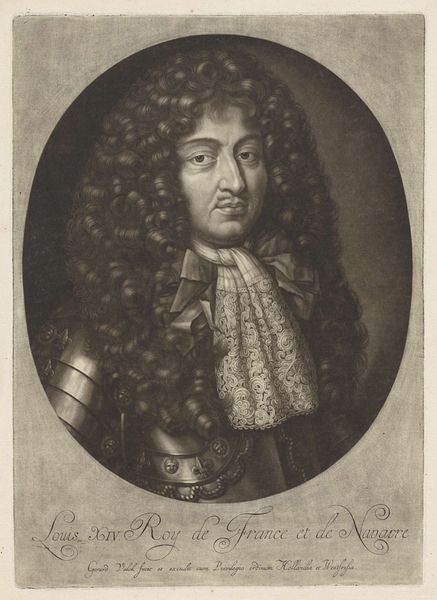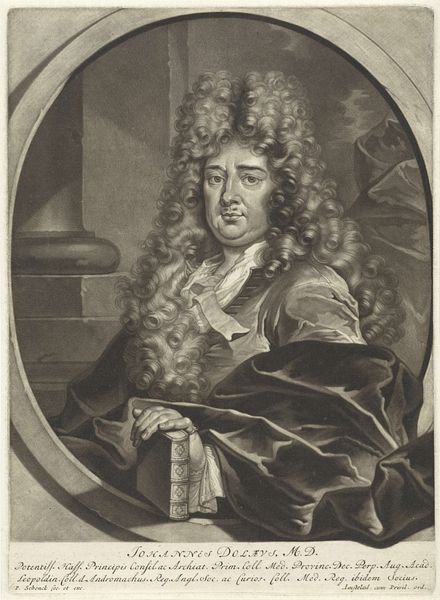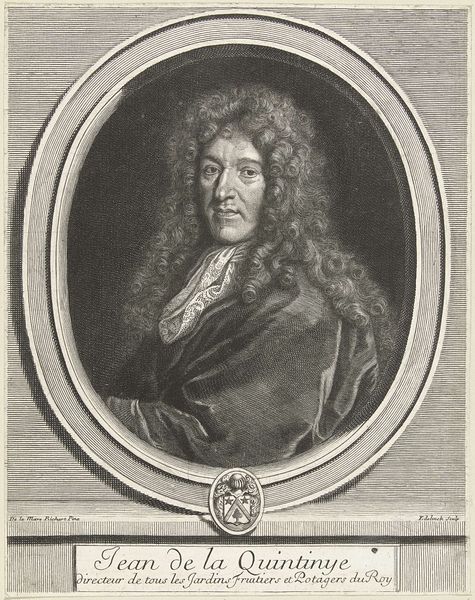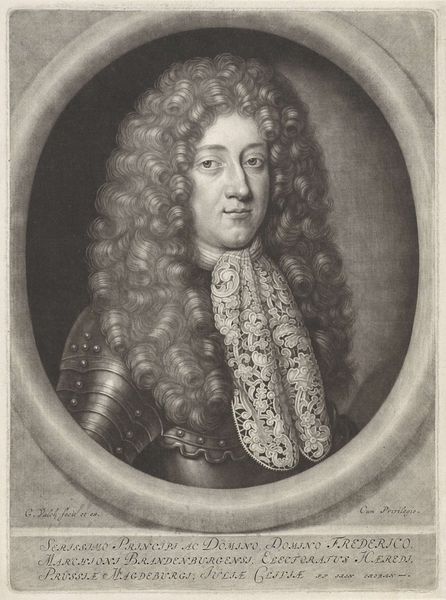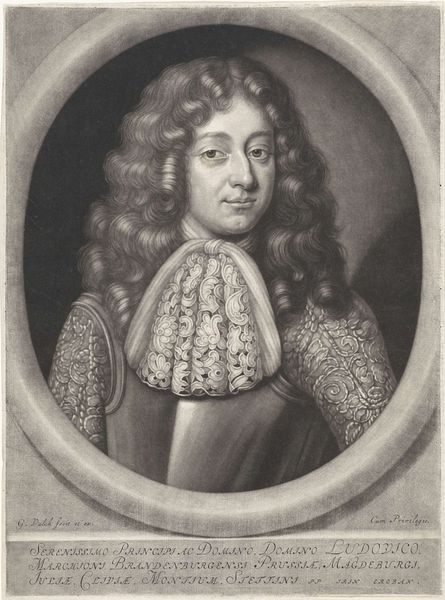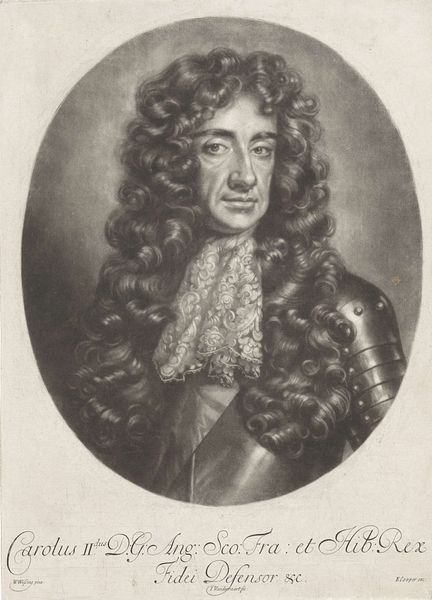
engraving
#
baroque
#
form
#
line
#
history-painting
#
engraving
Dimensions: height 107 mm, width 88 mm
Copyright: Rijks Museum: Open Domain
This portrait of William III of Orange, in the Rijksmuseum collection, was made with a printmaking technique, probably engraving, by an anonymous artist. The precision of the lines shows us the hand of a skilled artisan, capable of transforming a blank plate of copper into a portrait of a royal figure. The material aspect of the work deeply influences its appearance; the texture, the weight of the lines, the tonal gradations, the distribution of light and shadow, all contribute to the final image. The process involves transferring an image onto a metal plate, then using a tool called a burin to cut lines into the metal. The plate is then inked, and the ink is transferred to paper under high pressure, yielding a print. In its time, this kind of image would have been relatively easy to produce in multiples. It is easy to forget, now, how revolutionary printmaking was. This wasn’t painting, requiring the direct touch of a master. It was a semi-mechanical process, suited to the age of commerce.
Comments
No comments
Be the first to comment and join the conversation on the ultimate creative platform.
